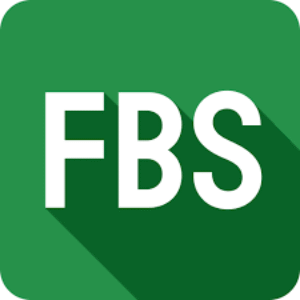
Finding the right stock broker can make a significant difference in your investment journey. The best stock brokers offer competitive fees, robust trading platforms, and valuable customer support, all of which are essential for successful stock trading. Whether you’re a beginner or an experienced investor, choosing the right broker is crucial to accessing the tools you need for making informed decisions.
As I explored the features of various online brokers, I discovered that efficiency and transparency in fee structures can enhance my trading experience. Many brokers are now offering commission-free trading options and user-friendly platforms that cater to a wide range of investors. This is an exciting time in the investing world, as competition among brokers stimulates improvements in services and tools.
In this blog post, I will share insights about the best stock brokers available, focusing on their trading capabilities, account features, and how they support different types of investors. By the end, you’ll have a clearer understanding of how to select the right broker for your unique trading needs.
Key Takeaways
- The best stock brokers provide competitive fees and useful features for investors.
- Choosing the right trading platform can enhance your investment experience.
- Customer support and educational resources are important for successful trading.
Understanding Stock Brokers and Brokerage Accounts
When I think about stock brokers, I consider how they serve as crucial intermediaries for investors. Having a clear grasp of the types of brokers and what to look for in a brokerage account is essential for making informed investment choices.
Types of Stock Brokers
There are primarily two types of stock brokers: full-service brokers and discount brokers. Full-service brokers, like Fidelity Investments and Charles Schwab, offer personalized advice, research, and a wide range of services. They are ideal for investors who prefer a hands-on approach and value expert guidance.
Discount brokers, such as Robinhood and Webull, focus on executing trades at lower costs. They typically provide fewer personal services but often include robust online platforms and tools. This option is more suitable for self-directed investors who want to manage their own portfolios without incurring high fees.
Knowing which type fits my investing style helps me choose the right broker.
5 Best Stock Brokers for UK
When it comes to investing in the UK market, choosing the right stock broker is crucial for your investment journey. Whether you’re a beginner or an experienced trader, the best stock brokers combine competitive fees, user-friendly platforms, and reliable customer service.
1. Hargreaves Lansdown
Hargreaves Lansdown has established itself as a premium stock broker in the UK market, serving over 1.7 million clients. With over 40 years of experience, they offer a comprehensive investment platform that caters to both novice and experienced investors.
Key Features:
- Extensive market research and analysis with expert insights and detailed company reports
- Award-winning mobile app with real-time trading capabilities and portfolio monitoring
- Access to international markets including UK, US, European, and Asian exchanges
- Excellence in customer service with UK-based phone support and quick response times
- FSCS protection up to £85,000 for added security
Costs and Fees:
- Share dealing: £11.95 per trade, reducing to £8.95 for 10-19 trades per month
- Annual platform fee: 0.45% for shares (capped at £45 for shares in ISAs)
- No dealing fees for funds
- Free real-time price quotes and alerts
2. Trading 212
Trading 212 has revolutionized the UK investment scene by offering commission-free trading and innovative features that appeal to modern investors. Their platform has gained significant popularity, especially among younger traders.
Key Features:
- Commission-free stock trading on UK and international shares
- Fractional shares available from just £1, making diversification accessible
- Low minimum deposit requirement of just £1
- User-friendly mobile interface with intuitive design and quick execution
- Practice account with £50,000 virtual money for risk-free learning
Additional Benefits:
- Automated investing through pies
- Over 10,000 stocks and ETFs available
- Real-time price alerts and notifications
- Comprehensive educational content
- Regular platform updates and improvements
3. Interactive Brokers (IBKR)
Interactive Brokers is renowned for its professional-grade trading platform and extensive market access, making it particularly suitable for active traders and sophisticated investors.
Key Features:
- Competitive margin rates starting from 1.5% in major currencies
- Advanced trading platform with professional-grade tools and customization
- Global market access to over 135 markets in 33 countries
- Sophisticated research tools including screeners and strategy testing
- Professional-grade charting with over 100 technical indicators
Trading Tools:
- IBKR Trader Workstation (TWS)
- Mobile trading app
- IBot AI-powered assistant
- Risk management tools
- Portfolio Builder and Rebalancing
4. AJ Bell Youinvest
AJ Bell Youinvest provides a comprehensive investment platform that appeals to both long-term investors and active traders, with a focus on value and service quality.
Key Features:
- Competitive fees for larger portfolios with tiered pricing structure
- Regular investment options with reduced dealing charges
- Comprehensive research center with market analysis and expert insights
- Wide range of investment options including shares, funds, ETFs, and bonds
- Strong educational resources including guides, videos, and webinars
Account Options:
- Stocks and Shares ISA
- SIPP (Self-Invested Personal Pension)
- Lifetime ISA
- Junior ISA
- General Investment Account
5. Freetrade
Freetrade has emerged as a popular choice for modern investors, offering a simplified approach to investing with a focus on mobile-first experience and commission-free trading.
Key Features:
- Simple, transparent pricing with no commission on basic trades
- Easy-to-use mobile app designed for intuitive investing
- Commission-free trading on basic orders
- ISA accounts available with competitive fees
- Growing range of stocks and ETFs, including US and UK markets
Platform Benefits:
- Instant deposits up to £2,000
- Fractional shares available
- Regular new stock additions
- Community-focused approach
- Clean, modern interface
What to Look for in a Brokerage Account
When selecting a brokerage account, I consider several key factors. First, I look at fees. Many online brokerages now offer commission-free trades, which is a significant advantage. It’s also crucial to examine the trading platform’s usability and features. A strong trading platform provides tools for research and analysis, which are vital for my investment strategies.
Next, I assess the investment choices available. A good broker should allow me to trade stocks, options, ETFs, and possibly cryptocurrencies. Good customer service is another priority; responsive support can make a big difference in managing my investments. Lastly, I check for educational resources, especially if I’m still learning the ropes of investing.
Evaluating Trading Platforms and Tools
When assessing trading platforms, I focus on user experience and the tools available for research and analysis. These aspects significantly impact how effectively I can manage my investments and execute trades.
Comparison of Trading Platforms
I find that different trading platforms offer varying features. Some platforms, like Interactive Brokers and TD Ameritrade, provide advanced trading capabilities, making them suitable for active traders. They offer features like advanced charting and market analysis tools.
Other platforms, such as Robinhood and Webull, focus on mobile access and user-friendly interfaces. They attract beginners with their commission-free trading options.
I look for platforms that support a mix of assets like stocks, ETFs, and cryptocurrency. Additionally, mobile apps are essential for trading on the go. Overall, I prioritize platforms that combine functionality with a seamless user experience.
Essential Trading and Research Tools
In my experience, having the right trading tools can make a big difference. Research tools, including technical analysis and market news, help me stay informed. Platforms like Charles Schwab and Fidelity Investments include detailed research sections, which are valuable for making informed decisions.
I also consider the availability of trading tools such as simulators and backtesting features. These tools allow me to practice strategies without financial risk. The integration of news feeds and real-time alerts can enhance my trading activities.
Ultimately, I choose platforms that offer a comprehensive set of tools for both trading and research.
Investment Products and Asset Classes

When I think about investing, several key products and asset classes come to mind. Each has its unique characteristics, risks, and rewards, making them valuable for different types of investors. Here, I explore a variety of investment choices that can help in building a diverse portfolio.
Exploring Stocks, ETFs, and Mutual Funds
Stocks are one of the most common ways to invest. When I buy stocks, I purchase a share of a company. This can lead to capital gains if the stock price increases.
Exchange-traded funds (ETFs) offer a way to invest in a collection of stocks or bonds all at once. They trade like individual stocks on exchanges, which makes them flexible. I find that ETFs often have lower fees than mutual funds, making them a cost-effective choice.
Mutual funds pool money from many investors to purchase a diversified set of stocks or bonds. They are managed by professionals. While I like the ease of mutual funds, I also consider the management fees that can affect my returns.
Options, Bonds, and Alternative Investments
Options are contracts that give me the right to buy or sell a stock at a certain price. They can add leverage to my portfolio, but they come with higher risks. I only use options when I fully understand their complexity.
Bonds are safer investments compared to stocks. When I buy bonds, I’m essentially lending money to a company or government. They typically offer fixed interest payments, making them predictable.
Alternative investments, such as cryptocurrencies or commodities, can diversify my holdings. I find cryptocurrencies appealing for their potential growth, though they are very volatile. Commodities like gold or oil can protect my portfolio during economic downturns.
Overall, each investment product and asset class offers unique opportunities and challenges.
Cost Considerations
When choosing a stock broker, cost is a major factor. Understanding fees and commissions can help me find the best deals while ensuring effective trading. By knowing the different types of fees, I can avoid unnecessary costs and make informed decisions.
Understanding Fees and Commissions
Most brokerage firms charge fees and commissions, which can impact my investment returns. Common costs include trading commissions, account maintenance fees, and fees for specific services. Some brokers, like Charles Schwab and TD Ameritrade, offer commission-free trading for stocks and ETFs.
It’s essential to review a broker’s fee schedule carefully. For example, no-transaction-fee mutual funds allow me to invest without incurring additional costs. Some brokers may charge a flat fee per trade, while others charge based on the trade size. Understanding these structures helps me choose a broker that aligns with my trading style.
Finding Low-Fee Investment Options
To keep my trading costs low, I can look for brokers that provide low fees or even $0 fees for trades. Many online platforms, such as Robinhood and Webull, have popularized commission-free trading. These platforms appeal to both beginners and seasoned traders seeking to minimize expenses.
Additionally, I can explore brokers that offer no-transaction-fee mutual funds and index funds. These options can provide diversified investment opportunities without the extra cost. Finding a broker that meets my needs while keeping expenses manageable is crucial for maximizing long-term investment growth.
Mobile Trading and Technology

Best Apps for Stock Trading
Mobile trading has become increasingly important for investors who want to manage their portfolios on the go. The best trading apps offer robust features while maintaining user-friendly interfaces. Many online brokers now provide powerful mobile platforms that rival their desktop counterparts.
Advanced Trading Features
Today’s trading platforms incorporate sophisticated tools like trading simulators, paper trading accounts, and advanced options trading features. These technologies help investors test strategies and execute complex trades with confidence.
Getting Started with Online Trading
Opening Your First Brokerage Account
Starting your trading journey begins with choosing the best online broker for your needs. Consider factors like minimum deposit requirements, account types (taxable brokerage account vs. retirement accounts), and the broker’s reputation.
Educational Resources for Beginners
The best online brokers provide comprehensive educational materials to help new investors learn trading strategies and understand market dynamics. Many platforms offer free stock trading tutorials and interactive learning tools.
Conclusion: Choosing the Right Broker for Your Needs
Selecting the best online broker requires careful consideration of multiple factors, including trading fees, platform features, and available investment products. Whether you’re a beginner or an experienced investor, the right broker should align with your investment goals and trading style.
The best online brokers of November 2024 combine competitive pricing with powerful trading platforms and comprehensive research tools. As the industry continues to evolve, brokers are increasingly offering commission-free stock and ETF trades while expanding their service offerings to meet diverse investor needs.
Remember to evaluate your specific requirements, such as mobile trading capabilities, research needs, and customer support preferences, when choosing among top online brokers. With the right brokerage account, you’ll be well-positioned to execute your investment strategy and work toward your financial goals.







